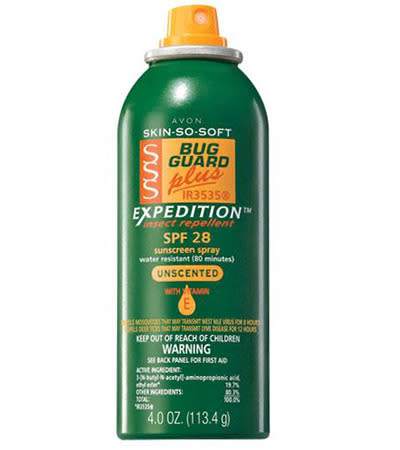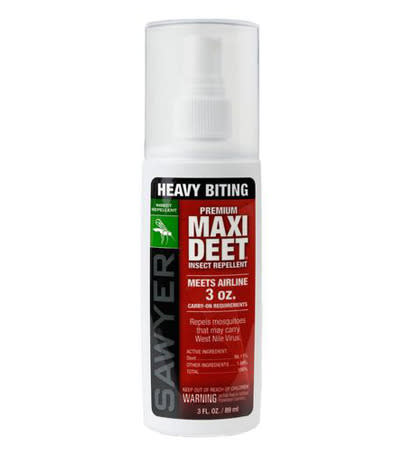The Mosquito Repellents Olympic Athletes Should Bring to Rio
The 2016 Olympics officially kick off in Rio de Janeiro on Friday. While the world’s best athletes are being welcomed to the South American country with condoms and air conditioning in each bedroom of their apartment — even if the plumbing isn’t quite there yet — the best defense against the mosquito-borne Zika virus is bug spray, but it can’t be just any insect repellent.
Despite the expected cool temperatures during the Games, which fall during Rio’s winter, the possibility of being infected remains. According to the Centers for Disease Control and Prevention, “Zika virus is transmitted to people primarily through the bite of an infected Aedes species mosquito (Aedes aegypti and Aedes albopictus).” It’s important to note that the disease is spread via this specific type of mosquito, not all mosquitoes. The disease is diagnosed by a blood test.
Angela Jones, MD, an obstetrician-gynecologist with a private practice in Eatontown, N.J., says those attending or competing in the Olympics should use an insect repellent registered with the U.S. Environmental Protection Agency (EPA). “You want to use something that contains at least 20 percent DEET, Picaridin, OLE (oil of lemon eucalyptus), PMD (para-menthane-3,8-diol), and/or IR3535 are other options,” she says. “The repellent you choose doesn’t have to contain all of these but should contain at least one of the previously mentioned active ingredients.”
Ehsan Ali, MD, a primary care physician in Beverly Hills, adds that “when used as directed, EPA-registered insect repellents are proven safe and effective, even for pregnant and breastfeeding women.”
Mosquito repellent is a must-have if you’re traveling to places that are Zika hotbeds. However, Jones says to make sure to do everything you can to minimize your risk of infection, like “wearing long sleeves and making sure your windows have screens in them if you’re sleeping with the windows open.” Ali also recommends sleeping under a mosquito net if you are overseas or outside and are not able to protect yourself from mosquito bites. And as the March of Dimes #ZapZika campaign so sagely advises, “If it’s wet, it’s a threat: Remove still water,” as it can attract mosquitoes.
Now that we understand which mosquito repellents work best against Zika, here are bug sprays Olympic athletes would be wise to stash in their luggage.

Avon Skin So Soft Bug Guard Plus ($16) is an EPA-approved bug spray, thanks to its composition of Picaridin, which repels insects, ticks, and chiggers. The synthetic compound was first made in the 1980s and has been widely used as an insect repellent in Europe and Australia, but it has been available in the United States only since 2005.

Sawyer Premium Maxi Deet ($8) features a 100-percent DEET formula, likely a choice of many an Olympic athlete this summer. One thing to note: While DEET is supremely effective at keeping Zika-carrying mosquitoes at bay, it also takes off even gel nail polish at a rate on par with acetone, so plan your manicure before heading off to your tropical destination this summer.

Repel Lemon Eucalyptus Insect Repellent Spray ($5) contains 40 percent oil of lemon eucalyptus, a natural alternative to chemicals DEET and Picarin, which the EPA says is just as effective at keeping mosquitoes away.
Let’s keep in touch! Follow Yahoo Beauty on Facebook, Twitter, Instagram, and Pinterest.